SOFTWARE MODELS
Service Models
Infrastructure as a Service (IaaS)
- Virtual Servers: Provisioning of virtual machines (VMs) that can be easily scaled and configured based on client requirements.
- Storage Solutions: Scalable storage options for data, including block storage, object storage, and archival solutions.
- Networking: Providing virtual networking capabilities, including load balancers, firewalls, and VPNs.
Platform as a Service (PaaS)
- Development Environments: Platforms that provide tools and services for developing, testing, and deploying applications without managing underlying infrastructure.
- Managed Databases: Services that allow clients to use databases without the complexities of setup and maintenance.
- Integration Tools: Solutions that facilitate the integration of different applications and services within the cloud environment.
Software as a Service (SaaS)
- Business Applications: Delivering applications such as CRM, ERP, and collaboration tools over the internet.
- Subscription Models: Offering software solutions on a subscription basis, reducing upfront costs and ensuring regular updates.
Core Services
Cloud Storage and Backup
- File Storage Solutions: Providing secure and accessible cloud-based storage for files and documents.
- Backup Services: Offering automated backup solutions to protect data against loss and ensure business continuity.
Cloud Migration Services
- Assessment and Planning: Evaluating existing IT infrastructure and creating a roadmap for migrating to the cloud.
- Execution and Optimization: Carrying out the migration process while optimizing applications and workloads for cloud performance.
Cloud Security
- Identity and Access Management (IAM): Services that manage user identities and permissions for accessing cloud resources.
- Threat Detection and Prevention: Implementing security measures such as intrusion detection systems (IDS) and firewalls.
Managed Cloud Services
- 24/7 Monitoring and Support: Continuous oversight of cloud environments to ensure optimal performance and availability.
- Cost Management and Optimisation: Tools and strategies for tracking and managing cloud expenses effectively.
Development and Operations (DevOps)
- CI/CD Pipelines: Implementing continuous integration and continuous deployment practices to streamline software development and deployment processes.
- Automation Tools: Implementing tools that automate the software development lifecycle, including testing, deployment, and monitoring.
- Collaboration Tools: Facilitating communication and collaboration between development and operations teams to improve software delivery.
Data Analytics and Business Intelligence
- Cloud-Based Analytics: Offering tools for data analysis and visualization to derive insights from cloud-stored data.
- Big Data Solutions: Providing scalable solutions for processing and analysing large datasets in the cloud.
Internet of Things (IoT) Solutions
- IoT Platforms: Offering cloud-based platforms to manage and analyse data from connected devices.
- Edge Computing: Providing solutions that process data closer to where it is generated, reducing latency and bandwidth usage.
Emerging Technologies and Innovations
- Artificial Intelligence (AI) and Machine Learning (ML): Cloud services that provide frameworks and tools for developing AI and ML applications.
- Blockchain Solutions: Cloud-based platforms for developing and managing blockchain applications.
Training and Support
- Technical Support Services: Providing ongoing support and troubleshooting for cloud services.
- Training Programs: Educating clients on how to effectively use cloud solutions and best practices.
